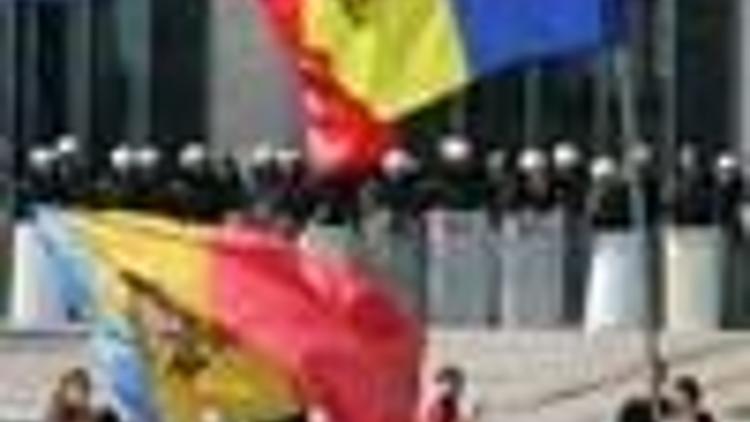Moldova blames Romania after riots
Güncelleme Tarihi:

Reuters
Oluşturulma Tarihi: Nisan 09, 2009 00:00
CHISINAU - Moldova's rulers regained control of parliament and the presidential offices from anti-government rallies yesterday and blamed NATO member Romania, its neighbor, for stoking the violence.
President Vladimir Voronin accused the opposition, which favors closer ties with the West, of attempting a coup in Tuesday's violent protests in the capital of Europe's poorest country. Hours after Voronin’s remarks, the Foreign Ministry announced it has ordered the Romanian ambassador to leave the country within 24 hours.
One woman died and about 100 people were hurt after protesters, who alleged that a weekend parliamentary election won by the ruling Communists was rigged, ransacked Voronin's offices and looted parliament. After riot police re-took the smoking and wrecked buildings early yesterday and rounded up 193 opposition protesters, Voronin said he was expelling Romania's ambassador. Moldova, an ex-Soviet republic, has close ethnic, cultural and linguistic ties with the NATO and the European Union member.
"When the flag of Romania was raised on state buildings, the attempts of the opposition to carry out a coup became clear," Voronin was quoted as saying by Russia's Interfax news agency. "We will not allow this."
Russia's RIA news agency quoted Voronin as saying the Romanian ambassador had been declared persona non-grata while Interfax said he accused Romania of involvement in riot.
Bucharest rejects accusation
The Romanian foreign ministry hit back saying Moldova's accusations amounted to "a provocation". It said it continued to support closer ties for Moldova with the EU.
President Voronin won immediate backing from Russia whose foreign ministry issued a statement of support for his action, saying the riots had been aimed at undermining Moldova's sovereignty.
"We all saw under which flags these outrages have been carried out and hope that the European Union will make most serious conclusions," Foreign Minister Sergei Lavrov said. The United States and the EU urged an end to violence.
Mass street protests against disputed election results in other ex-Soviet states led to power changes in now pro-Western Georgia, Ukraine and Kyrgyzstan, though it was not clear in Moldova's case what grassroots support the protesters had.
One woman died and about 100 people were hurt after protesters, who alleged that a weekend parliamentary election won by the ruling Communists was rigged, ransacked Voronin's offices and looted parliament. After riot police re-took the smoking and wrecked buildings early yesterday and rounded up 193 opposition protesters, Voronin said he was expelling Romania's ambassador. Moldova, an ex-Soviet republic, has close ethnic, cultural and linguistic ties with the NATO and the European Union member.
"When the flag of Romania was raised on state buildings, the attempts of the opposition to carry out a coup became clear," Voronin was quoted as saying by Russia's Interfax news agency. "We will not allow this."
Russia's RIA news agency quoted Voronin as saying the Romanian ambassador had been declared persona non-grata while Interfax said he accused Romania of involvement in riot.
Bucharest rejects accusation
The Romanian foreign ministry hit back saying Moldova's accusations amounted to "a provocation". It said it continued to support closer ties for Moldova with the EU.
President Voronin won immediate backing from Russia whose foreign ministry issued a statement of support for his action, saying the riots had been aimed at undermining Moldova's sovereignty.
"We all saw under which flags these outrages have been carried out and hope that the European Union will make most serious conclusions," Foreign Minister Sergei Lavrov said. The United States and the EU urged an end to violence.
Mass street protests against disputed election results in other ex-Soviet states led to power changes in now pro-Western Georgia, Ukraine and Kyrgyzstan, though it was not clear in Moldova's case what grassroots support the protesters had.

